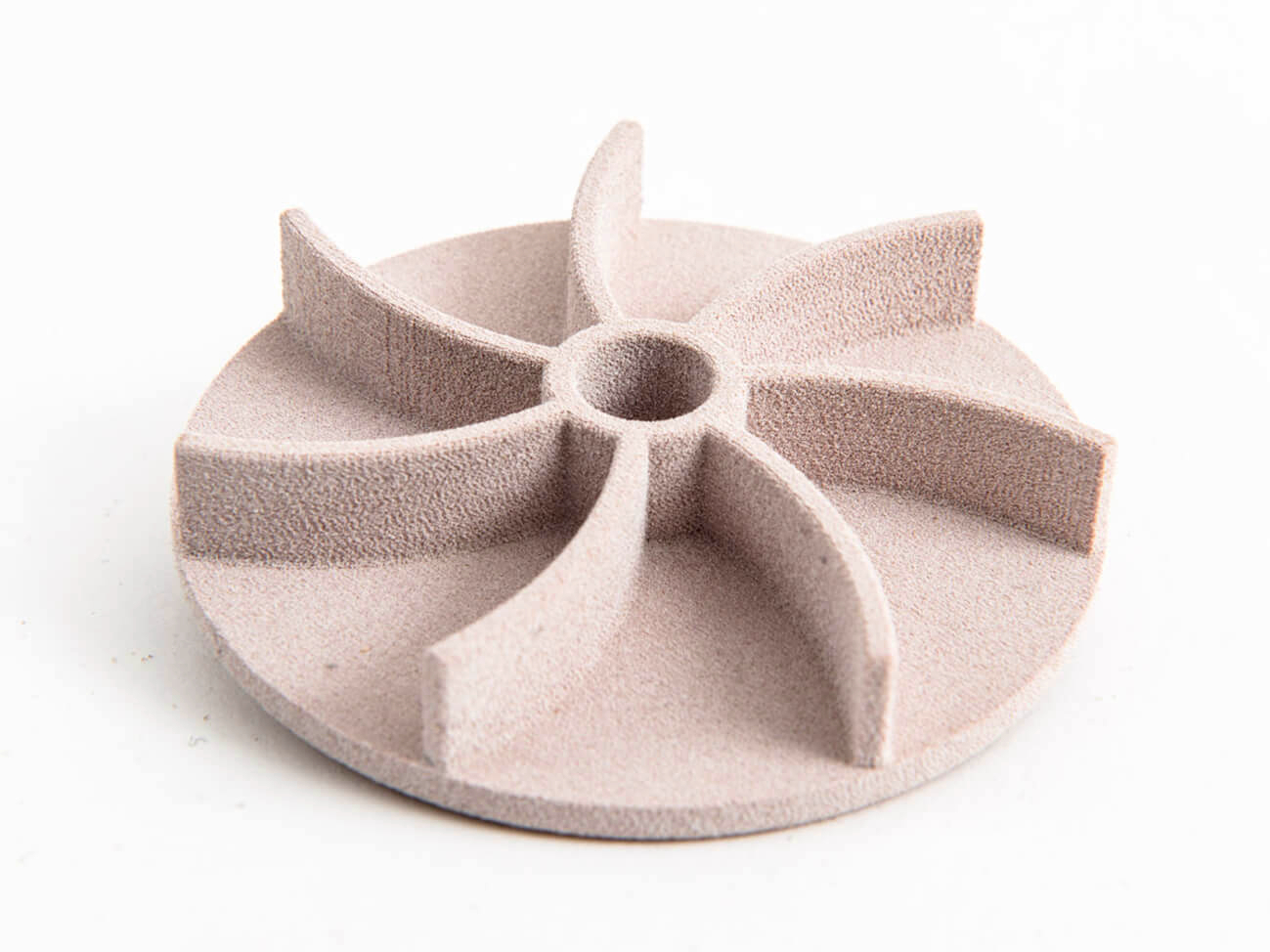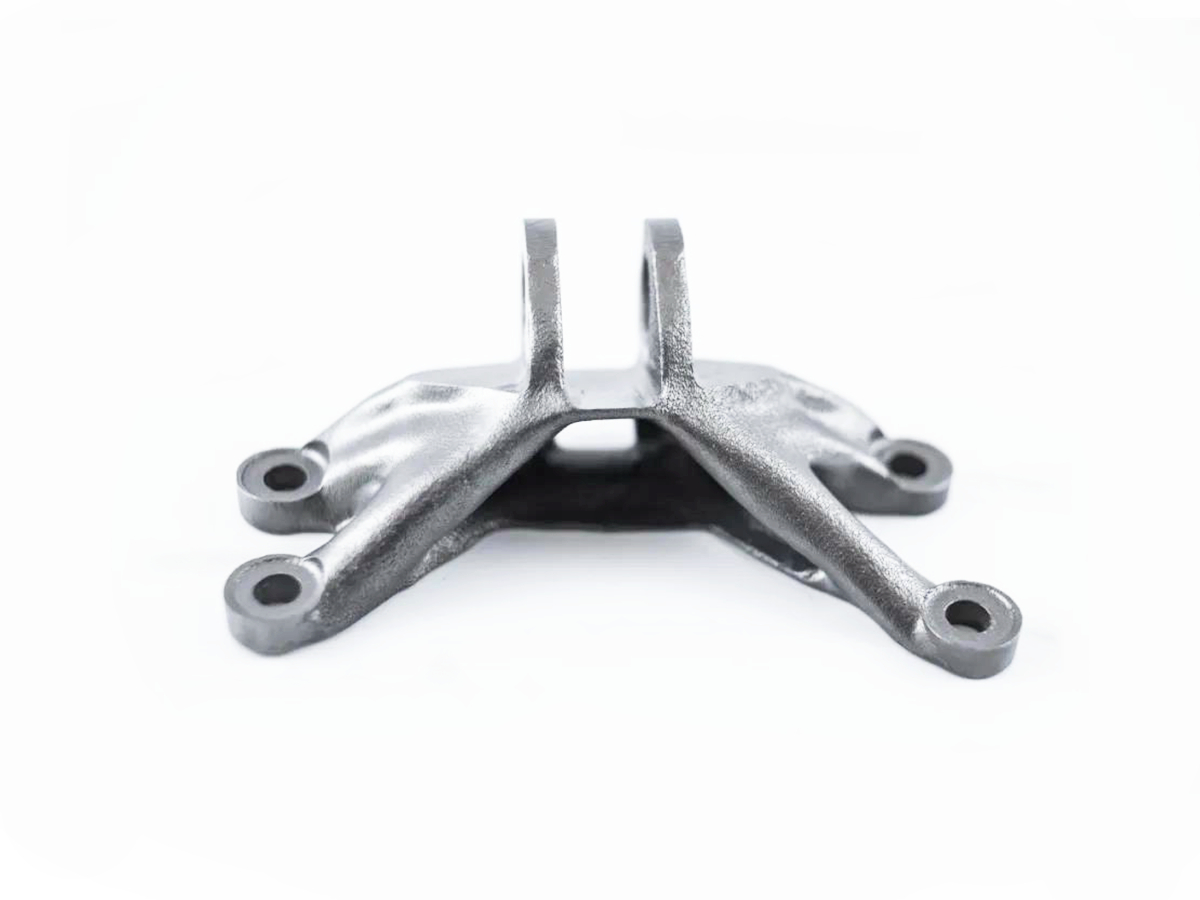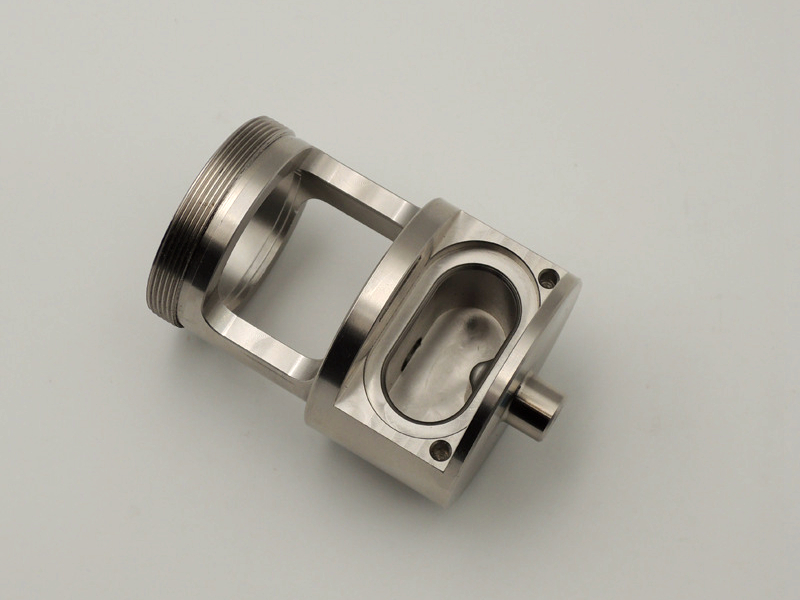Materiais usados na Sinterização Seletiva a Laser (SLS)
A Sinterização Seletiva a Laser (SLS) tornou-se uma das principais tecnologias de manufatura aditiva, reconhecida por sua excepcional capacidade de criar geometrias complexas sem as limitações dos processos de fabricação tradicionais. Na Neway Machining, nossos serviços especializados de Impressão 3D por Sinterização Seletiva a Laser (SLS) utilizam uma ampla gama de materiais adaptados com precisão a várias aplicações industriais, incluindo aeroespacial, automotiva, dispositivos médicos e equipamentos industriais. Compreender as características específicas dos materiais compatíveis com SLS é crucial para alcançar desempenho e eficiência ideais em seus projetos de manufatura.
Visão Geral da Sinterização Seletiva a Laser (SLS)
A Sinterização Seletiva a Laser emprega um laser de alta potência para fundir material em pó camada por camada, criando componentes tridimensionais duráveis, detalhados e funcionais. As vantagens inerentes da SLS incluem notável flexibilidade de design, eliminação de custos com moldes, capacidade de prototipagem rápida e adequação tanto para testes funcionais quanto para produção de baixo a médio volume. Na Neway, o uso de tecnologia SLS avançada nos permite atender às necessidades sofisticadas de fabricação de forma eficiente e precisa.
Tipos de Materiais Adequados para Sinterização Seletiva a Laser (SLS)
A escolha do material apropriado é essencial para maximizar as vantagens oferecidas pela tecnologia SLS. Na Neway Machining, classificamos os materiais SLS em três categorias: polímeros, metais e ligas, e cerâmicas. Cada categoria possui propriedades, aplicações e critérios de seleção únicos.
1. Materiais Poliméricos e Plásticos
Os polímeros são os materiais mais utilizados na SLS devido às suas propriedades térmicas, mecânicas e químicas favoráveis. Os principais polímeros processados incluem:
Poliamida (PA, Nylon): Nylon (PA – Poliamida) é conhecido por sua elevada resistência mecânica, excelente durabilidade, flexibilidade e resistência ao desgaste e impacto. Aplicações típicas incluem componentes automotivos (engrenagens, carcaças), protótipos funcionais, produtos de consumo e equipamentos industriais onde força e precisão são essenciais.
Polipropileno (PP): Polipropileno (PP) destaca-se por sua excepcional resistência química, flexibilidade, leveza e adequação para peças dinâmicas, como dobradiças, encaixes de pressão e carcaças de eletrônicos de consumo. Também apresenta excelente resistência à fadiga, sendo uma escolha ideal para aplicações que envolvem esforços repetidos.
Poliéter Éter Cetona (PEEK): PEEK é um polímero de alto desempenho amplamente utilizado devido à sua excelente estabilidade térmica (até 260°C), resistência química e robustez mecânica. Indústrias como aeroespacial, implantes médicos, automotiva e aplicações industriais de alto desempenho dependem fortemente do PEEK para ambientes desafiadores.
2. Materiais Metálicos e Ligas
Embora a Fusão Seletiva a Laser (SLM) seja mais comum para metais, a Sinterização Seletiva a Laser também pode processar misturas metálicas especializadas ou compósitos de matriz metálica para aplicações específicas. Na Neway, nossas capacidades com ligas metálicas incluem:
Aço Inoxidável: Aço inoxidável oferece alta resistência à corrosão, força mecânica e durabilidade excepcional. Componentes fabricados em aço inoxidável são comuns em instrumentos médicos, sistemas de escape automotivos, fixadores aeroespaciais e equipamentos industriais de precisão.
Ligas de Titânio (ex.: Ti-6Al-4V): Ligas de titânio proporcionam relações força-peso incomparáveis, biocompatibilidade e resistência à corrosão, tornando-as essenciais para peças aeroespaciais de alto desempenho, implantes biomédicos e componentes de corrida automotiva. A liga Ti-6Al-4V (Titânio Grau 5) combina resistência à tração excepcional (até 1000 MPa), baixa densidade (4,43 g/cm³) e excelente resistência à corrosão.
Superligas (Inconel, Hastelloy): Superligas, incluindo Inconel e Hastelloy, demonstram resistência superior à corrosão, oxidação e temperaturas extremas (até 1100°C). Esse desempenho excepcional é vital para pás de turbinas aeroespaciais, equipamentos de processamento químico e componentes de exploração de petróleo e gás.
3. Materiais Cerâmicos
Cerâmicas avançadas processadas por sinterização a laser oferecem propriedades especializadas ideais para aplicações exigentes que requerem alta resistência térmica, isolamento elétrico e estabilidade mecânica:
Alumina (Al₂O₃): Cerâmica de alumina distingue-se por sua excelente resistência dielétrica, estabilidade térmica (temperaturas de operação acima de 1500°C) e resistência à abrasão. Essas qualidades tornam a alumina ideal para substratos eletrônicos, componentes resistentes ao desgaste e peças isolantes na indústria de semicondutores.
Zircônia (ZrO₂): Zircônia oferece tenacidade superior, alta resistência à fratura, excelente força (resistência à flexão >1000 MPa) e biocompatibilidade, sendo amplamente utilizada em próteses médicas, implantes dentários, componentes industriais de alta precisão e peças de máquinas resistentes ao desgaste.
Fatores que Influenciam a Seleção de Materiais para SLS
A seleção do material correto para SLS envolve uma análise cuidadosa de fatores como:
Requisitos Mecânicos: resistência, tenacidade, flexibilidade e resistência à fadiga.
Desempenho Térmico: estabilidade, ponto de fusão e temperatura de deflexão térmica.
Resistência Química: adequação a ambientes corrosivos ou contato com produtos químicos agressivos.
Requisitos Específicos de Aplicação: biocompatibilidade, isolamento elétrico e precisão dimensional.
Custo-Benefício: custos de material e processamento em relação às demandas de aplicação e desempenho.
Conclusão
A escolha do material adequado para a Sinterização Seletiva a Laser (SLS) é fundamental para alcançar resultados ideais em cenários de fabricação complexos. A ampla gama de materiais da Neway Machining, combinada com nossas capacidades avançadas em SLS, permite personalização precisa e fabricação de componentes de alto desempenho adaptados às exigências específicas da sua indústria. Aproveitando nossa experiência técnica, garantimos soluções confiáveis, eficientes e econômicas que atendem a especificações rigorosas em diversos setores.
Para obter informações detalhadas sobre a Sinterização Seletiva a Laser, visite nosso artigo completo: O que é Impressão 3D por Sinterização Seletiva a Laser (SLS)?



